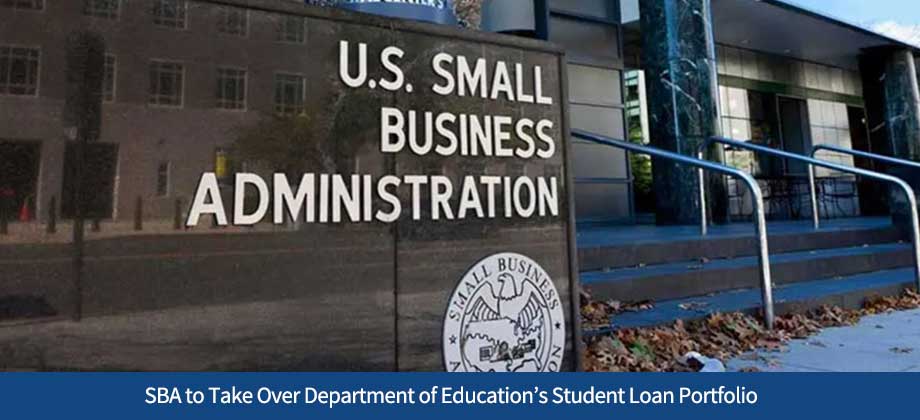SBA to Take Over Department of Education’s Student Loan Portfolio

On March 21, President Donald Trump announced plans to transfer the management of the federal student loan portfolio from the Department of Education to the Small Business Administration (SBA). This move is part of a broader initiative to dismantle the Department of Education, an executive order that requires congressional approval and is currently embroiled in several lawsuits. Today we’ll talk through the details, challenges, and implications involved in transferring these responsibilities to an administration that recently cut 43 percent of its workforce.
Details of the Transfer
The federal student loan portfolio encompasses approximately $1.7 trillion in loans, serving over 40 million borrowers. Education Secretary Linda McMahon and SBA Administrator Kelly Loeffler are collaborating on a strategic plan for this transition, but specific timelines and operational details have yet to be unveiled. Adding to concerns, the SBA workforce reduction raises questions about its capacity to manage the additional responsibilities associated with student loans.
Legal and Operational Challenges
To be sure, the proposed transfer faces legal hurdles. Abolishing a federal department and reallocating its functions necessitates congressional approval, which has not yet been secured. Several organizations, including the NAACP and the National Education Association, are preparing to file lawsuits challenging the move, their argument being that such a transfer could lead to inconsistent loan management and potential errors—adversely affecting borrowers and taxpayers.
Implications for Borrowers
As of now, the Department of Education maintains that there are no immediate changes for student loan borrowers. However, advocates express concern that the transition could result in processing delays and increased administrative errors, which may impact borrowers’ ability to manage and repay their loans effectively.
The initiative to transfer the student loan portfolio to the SBA represents a major shift in federal education policy. While the administration says that this move will lead to more efficient loan servicing, there are sure to be a number of legal, operational, and practical challenges that will have to be addressed. So for borrowers and stakeholders, it’s important to stay informed as the situation evolves: Follow us over at ARF Financial and the Financial Pantry, where we’ve always got our pulse on the latest updates from Washington.
Your privacy is important to us. ARF Financial will never sell or rent your information to any third party. Click here for more information about our privacy policy.

